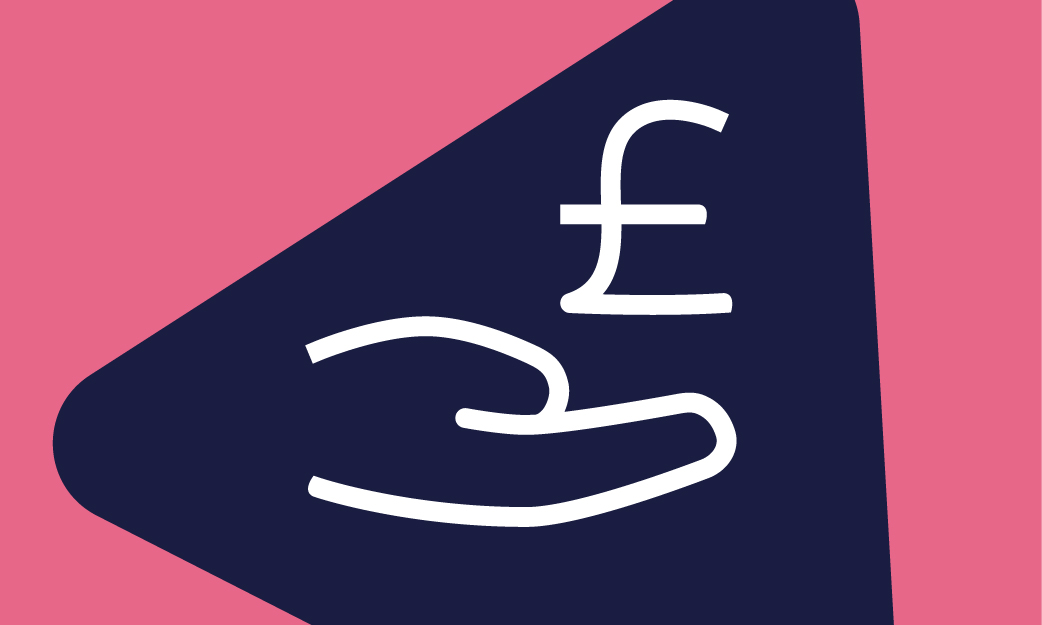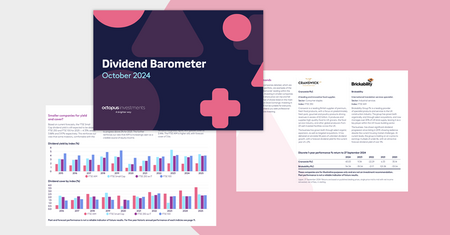Octopus Apollo VCT
Accelerating the growth of smaller business to business (B2B) software businesses
closed
Closed for new investment
Octopus Apollo VCT
Accelerating the growth of smaller business to business (B2B) software businesses
closed
Closed for new investment
Octopus Apollo VCT invests in higher risk smaller businesses that have already brought their product or service to market successfully. Investors get access to a diversified portfolio of around 45 companies (focusing on business-to-business (B2B) software) with high growth potential, as well as the expertise of Octopus Ventures, one of Europe’s largest venture capital teams.
Reasons to invest

Annual dividend target
Octopus Apollo VCT targets an annual dividend yield of 5% of the net asset value (NAV) with the potential for special dividends, though these are not guaranteed.

Risk-return profile
A mix of debt and equity investments provides investors with a different risk-return profile to equity alone.

Established and diversified
The portfolio has around 45 UK smaller companies across a wide variety of industries.

Tax reliefs
Income tax relief equal to 30% of the amount invested up to the first £200,000 of investment.
Tax-free capital gains and dividends.
Risks to bear in mind
Capital at risk
The value of an investment, and income from it, can fall as well as rise. Investors could end up getting back less than they put in.
Tax treatment
Tax treatment depends on individual circumstances and tax rules could change in the future.
Volatility and liquidity
VCT shares could fall or rise in value more than other shares listed on the main market of the London Stock Exchange. They may also be harder to sell.
VCT qualification status
Tax reliefs depend on the VCT maintaining its qualifying status.
Risks to bear in mind
Capital at risk
The value of an investment, and income from it, can fall as well as rise. Investors could end up getting back less than they put in.
Tax treatment
Tax treatment depends on individual circumstances and tax rules could change in the future.
Volatility and liquidity
VCT shares could fall or rise in value more than other shares listed on the main market of the London Stock Exchange. They may also be harder to sell.
VCT qualification status
Tax reliefs depend on the VCT maintaining its qualifying status.
Apollo VCT performance update
Portfolio companies
Performance
| Year to 31 January 2025 | Annual total return¹ | Annual dividend yield² |
|---|---|---|
| 2021 | 12.7% | 5.0% |
| 2022 | 13.6% | 11.6%3 |
| 2023 | 11.2% | 5.2% |
| 2024 | 0.0% | 5.1% |
| 2025 | 5.1% | 5.1% |
Past performance is not a reliable indicator of future results and may not be repeated. Dividends are not guaranteed.
The performance information above shows the total return of Octopus Apollo VCT for the last five years to 31 January 2025.
(¹) The annual total return for Octopus Apollo VCT is calculated from the movement in net asset value (NAV) over the period to period end, with any dividends paid over the period then added back. The revised figure is divided by the NAV at the start of the period to get the annual total return. Performance shown is net of all ongoing fees and costs.
(²) The annual dividend yield is calculated by dividing the dividends paid during the period by the NAV at the start of the period. Please note, the NAV per share may be higher than the share price, which is the price you may get for the shares on the secondary market.
(³) A special dividend of 3.1p was paid in January 2022.
The NAV is the combined value of the assets owned by the VCT after deducting the value of its liabilities (such as debts and financial obligations). The performance shown is net of all ongoing fees and costs.
Fund updates
Dividend history
View the dividend history for shareholders in Octopus Apollo VCT.
Shareholder information
See the announcements and reports for shareholders in Octopus Apollo VCT, and find relevant contact information.
Fees and charges
If you are investing in Octopus Apollo VCT through a financial adviser, here are two ways you can facilitate fees. For other options view page 26 of the Apollo VCT brochure.
Through a financial adviser who charges a one-off fee
You can ask for the one-off fee for the investment advice to be paid on your behalf through the VCT.
Through a financial adviser who charges ongoing fees
Where an investor receives ongoing advice, you can choose to pay your financial adviser a smaller initial fee and ongoing fees for as long as you hold the investment. Both of these fees can be paid on your behalf through the VCT.
Fees and charges
When investing through a financial adviser, clients have two ways to facilitate fees. For other options view page 26 of the Apollo VCT brochure.
If you charge a one-off fee
The one off-fee for the investment advice can be paid on your client’s behalf through the VCT.
If you charge ongoing fees
Where your client receives ongoing advice, they can choose to pay you a smaller initial fee and ongoing fees for as long as they hold the investment. Both of these fees can be paid on the investor’s behalf through the VCT.
| Advised (initial only) | Advised (initial and ongoing) | ||
|---|---|---|---|
| Upfront charges | Initial fee (to Octopus) | 3% | 3% |
| Adviser charges | Up to 4.5% | Up to 2.5% | |
| Ongoing annual charges | Annual management charge (to Octopus) | 2% | 2% |
| Adviser charges¹ | – | Up to 0.5% | |
| Performance fees | Performance fee ² | 20% | 20% |
(1) Ongoing adviser charges or commission are paid for a maximum of nine years after the investment date. If your client chooses to pay less than the maximum amount shown in the table, Octopus Apollo VCT will use the money left over to buy more VCT shares for them. Similarly, if you’re an execution only intermediary and do not take any upfront commission, this amount will
instead be used to buy additional VCT shares for your client.
(2) Octopus may charge a 20% performance fee. In order to be eligible to do so the NAV plus cumulative dividends at the year end (31 January) must exceed the previous highest NAV plus cumulative dividends (net of performance fee already taken). In this case Octopus will charge a 20% performance fee on the excess. For full details on the performance fee and other fees please see
the prospectus and KID. The minimum investment is £5,000.
How to invest:
Minimum investment is £5,000.
Clients can choose to invest via bank transfer, cheque or banker’s draft.
Clients can only claim tax relief on VCT investments of up to £200,000 in any single tax year.
We will allot clients’ VCT shares at the next available allotment date.

How to invest:
Minimum investment is £5,000.
You can choose to invest via bank transfer, cheque or banker’s draft.
You can only claim tax relief on VCT investments of up to £200,000 in any single tax year.
We will allot your VCT shares at the next available allotment date.

Contact our team
If you have a question about Octopus Apollo VCT or an application,
call us on 0800 316 2295.
If you have a question about an existing VCT, please visit our FAQ page.
We’re here to support you
If you’ve got a question about any of our products or services, please get in touch.
If you have a question about an existing VCT, please visit our FAQ page.
Please read: We do not offer investment or tax advice, and we always recommend investors talk to a financial adviser before making investment decisions. This advertisement is not a prospectus. Investors should only subscribe for shares on the basis of information contained in the prospectus, supplementary prospectus, AIFMD supplement and the Key Information Documents (KID), which are available in the document section of this page.
Related VCT resources

Venture Capital Trusts Explained
Learn how VCTs function, the types of early-stage companies they invest in, and the tax benefits and risks involved.

How to claim VCT tax relief
Learn how to claim up to 30% income tax relief on Venture Capital Trust (VCT) investments and enhance your understanding to support your clients’ investment decisions.

VCT FAQ’s
Our easy-to-read guide answers common questions about Venture Capital Trusts (VCTs), designed to help you understand VCTs better and assist your clients with confidence.









